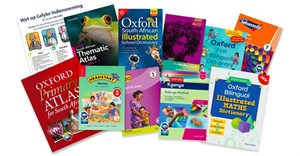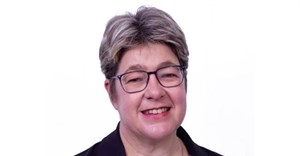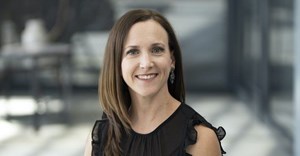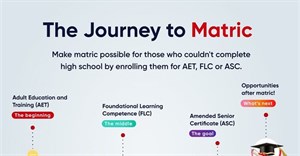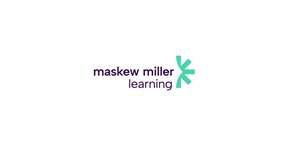Subscribe & Follow
Jobs
- HR Administrator Johannesburg
Making learning more fun for SA kids

It is no wonder that educational outcomes in South Africa are poor and many experts are alarmed. The most recent Progress in International Reading Literacy Study (PIRLS) revealed that 81% of Grade 4 learners could not read for meaning in any of the 11 official languages. In terms of mathematic performance, our children are not faring much better. According to the Trends in International Mathematics and Science Study (TIMMS), SA primary school kids had the third lowest score out of 64 countries tested. For Grade 9 learners, SA received the second-lowest score out of 39 countries. At the time, less than a third of all learners took mathematics in Grade 12.
SA’s poor maths results can be attributed to various causes, but mainly to the approaches used in teaching, and the shortage of qualified teachers. According to educational expert, Professor Jonathan Jansen, early childhood development is vital when it comes to mathematics. He says, “In mathematics, you build on knowledge acquired earlier… children who went to preschool do better at maths than those who didn’t.”
Professor Jansen in 2023 gave a talk to leading mathematicians, at which he examined what was wrong with the way mathematics was taught in South Africa. I was particularly intrigued by his comment that: “mathematics is taught without meaning, as a series of operations,” and secondly, his comments around the fear of failing at mathematics. “Ours is a risk-averse society,” he said. “In classrooms we stress not experimentation but the right answers. You are made to look stupid if you get the answer wrong.”
It is hardly any wonder that many families are turning to homeschooling as an alternative. It is one way of stepping out of the system and giving learners more attention, but it has its own drawbacks: without the right resources and training, it’s difficult for parents to know if they are getting it right – and it can still lead to children falling behind.
When it comes to the education of our children it is clear that all of us need help — teachers, parents, and learners.
A recent educational development has been particularly encouraging though — that of the narrative-based learning textbook. This is a kind of holistic learning tool that takes a different approach to teaching content. It uses a story as a basis when teaching various subjects. In Biology Stories, author Mike Tveten, for instance, uses stories to explain complex chemistry and biology to high school learners.
For foundation phase learners in South Africa, it may be useful to consider a recently published set of books by Georgina Douglas, Oxford Beyond Problem Solving in Mathematics. One book starts with two characters, Aslam and Lizzy, who are taken stargasing on Signal Hill. They are counting stars and comparing who saw more. The two children play mathematical games with the counting of the stars thereby teaching numerical concepts in a different, novel way. The book contains six such stories aimed at young children, giving them the foundational numerical knowledge that they need at the beginning of their mathematics education. There are three books in the series, aligning to foundation phases grades 1,2 and 3.
Interestingly, narrative teaching is well-researched and tested, and is especially beneficial when it comes to increasing motivation, engagement with subject matter and interest in topics.
I have friends and colleagues who are using such textbooks for their kids. They tell me that the beauty of these textbooks is that kids learn, but they learn from a distance. They can read about somebody else solving a math problem, and if that person fails, the child doesn’t feel that sense of failure. They are more open to trying to understand, for instance, the math problem and without the pressure to understand it right away, are empowered to comprehend it in their own time.
These kinds of textbooks differ from more traditional ones in terms of how the content is presented and structured for their audience. The content in traditional textbooks is often merely memorised, which leads to superficial learning, but with narrative-based textbooks, learners are thinking about what they are reading on a deeper level.
Making learning fun again
Story-based learning caters to all different kinds of learners, says Vanessa Boris in Harvard Business Corporate Learning. “Visual learners appreciate the mental pictures storytelling evokes. Auditory learners focus on the words and the storyteller’s voice. Kinaesthetic learners (those who learn from physical activity) remember the emotional connections and feelings from the story,” says Boris.
Narrative-based learning can combine all three as learners can hear the story being told, they visualise and identify with the characters as they go about activities such as counting stars, making the learning more concrete and real for them. The abstract is made visual by using stars to illustrate the academic concept—and many children have looked up at the stars and wondered about them.
What really makes narrative-based learning stand out for me, is the aspect of fun and pleasure. Children enjoy the learning process more, and it brings fun back into their educational journey. According to my friends who are using these types of books with their kids the only problem, they can see, is that their children enjoy the stories so much that they want to hear them all the time.
Promoting a happier learning environment is a significant educational goal according to the United Nations. A 2024 UN report noted the importance of putting children’s emotional wellbeing at the forefront of education, going so far as to propose a series of “Happy Schools”. The philosophy here is that happy children learn better and more effectively. These schools are built around evidence-based approaches – namely empowerment, inclusion, and trust – to enhance educational gain.
For me, this is of special significance as our learners already battle so much despite being so young, from problems at home, to poor socio-economic conditions and disadvantaged learning environments.
SA schools need far more than textbooks if they are to succeed. They need increased support from government and public-private partnerships, a better use of resources, and curricula that cater to children’s needs – especially to literacy and numeracy. These areas need planning and time to yield noticeable results. But narrative-based textbooks seem to be a step in the right direction.
About Yolyn Jacobs
Yolyn Jacobs is a publisher for Schools and Home Learning at Oxford University Press South Africa (OUPSA).- Making learning more fun for SA kids22 Aug 13:10
- Oxford Saïd and Burjeel Holdings collaborate to launch the global Climate Change Challenge01 Aug 11:11
- To get SA’s children reading – we need local stories that intrigue them23 Jul 12:19
- Oxford University Press Southern Africa gives back on Mandela Day22 Jul 16:12
- Are SA schools ready to teach coding and robotics? The experts say — yes!25 Jun 14:16
















